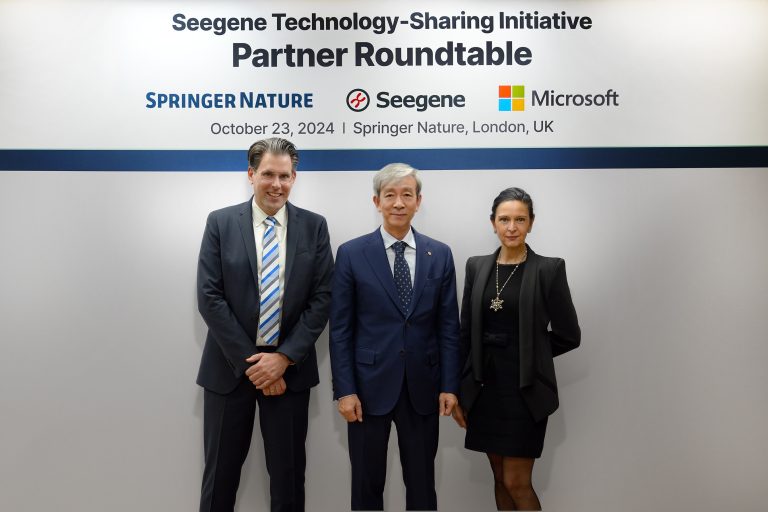Seegene Inc., a prominent South Korean PCR molecular diagnostics company, has joined forces with Microsoft and Springer Nature in a global technology-sharing initiative designed to tackle future pandemics and work towards a world free from diseases. The collaboration was highlighted at the first executive roundtable held on 23 October at the Springer Nature London Campus, where initial achievements and future strategies were discussed by key figures, including Seegene’s CEO Dr. Jong-Yoon Chun, Microsoft’s healthcare leader Elena Bonfiglioli, and Springer Nature’s Marc Spenlé and Steven Inchcoombe.
The collaboration draws on Seegene’s syndromic real-time PCR technology, Microsoft’s AI and cloud services, and Springer Nature’s scientific outreach to accelerate diagnostic innovation globally. This ambitious initiative aims to deliver diagnostic tools tailored to the health needs of various regions, enabling faster, more effective responses to emerging threats. Seegene’s goal is to make diagnostic capabilities available to every community, with tools to track and control a broad spectrum of human, animal, and plant diseases.
During the London event, the companies presented preliminary outcomes of integrating Microsoft’s Azure Open AI into Seegene’s product development system (SGDDS), which is designed to streamline diagnostics development. This AI application, which processes scientific literature quickly, allows researchers to reduce time spent on data analysis, potentially accelerating the creation of new diagnostic tools.
Dr. Chun emphasised the potential for AI-driven diagnostics, commenting, “Access to shared global diagnostic data through Microsoft’s AI allows scientists to respond swiftly to new diseases.” Microsoft’s Bonfiglioli highlighted that, with AI and cloud solutions, data management can now support global disease diagnosis in real time. Microsoft’s role in the partnership is to support Seegene’s ambition for a disease-free world, with tools that can monitor global health issues as they emerge.
Seegene’s diagnostic approach includes its advanced syndromic real-time PCR, which can detect up to 14 pathogens simultaneously in one test, delivering accurate, timely information about multiple infectious agents. This is crucial for identifying and containing complex, multi-pathogen outbreaks, which are likely to become more frequent with climate change.
Partner companies will gain access to Seegene’s technology, enabling them to produce PCR-based diagnostics locally, so that each region can respond quickly to its unique health challenges. By adapting these capabilities to regional needs, the technology-sharing initiative aims to prepare communities for future health emergencies with minimal disruption.
Springer Nature is also actively involved through its Open Innovation Program (OIP), launched with Seegene in 2023, which invites scientists to contribute to new PCR diagnostic assay developments. In 2024, Springer Nature expanded this program into the prestigious MDx Impact Grants, which encourage further participation in diagnostics development. Mr. Spenlé, COO of Springer Nature, expressed high expectations for the grants, hoping they will catalyse adoption of PCR diagnostics and help underserved populations access high-quality testing.
The London event also included the OIP Award ceremony, where European winners among global awardees were recognised for their contributions. Prof. Dame Jenny Harries, Chief Executive of the UK Health Security Agency, delivered a keynote address, reflecting on her meeting with Dr. Chun in South Korea to discuss Seegene’s role in the COVID-19 response and this new technology-sharing programme.
Through this collaboration, Seegene, Microsoft, and Springer Nature are setting a precedent for global cooperation in diagnostics, leveraging AI and data-sharing to tackle the threat of emerging diseases. A declaration ceremony is expected next year, which will outline further strategies for uniting Seegene’s diagnostics with Microsoft’s AI to build a world free from disease.

